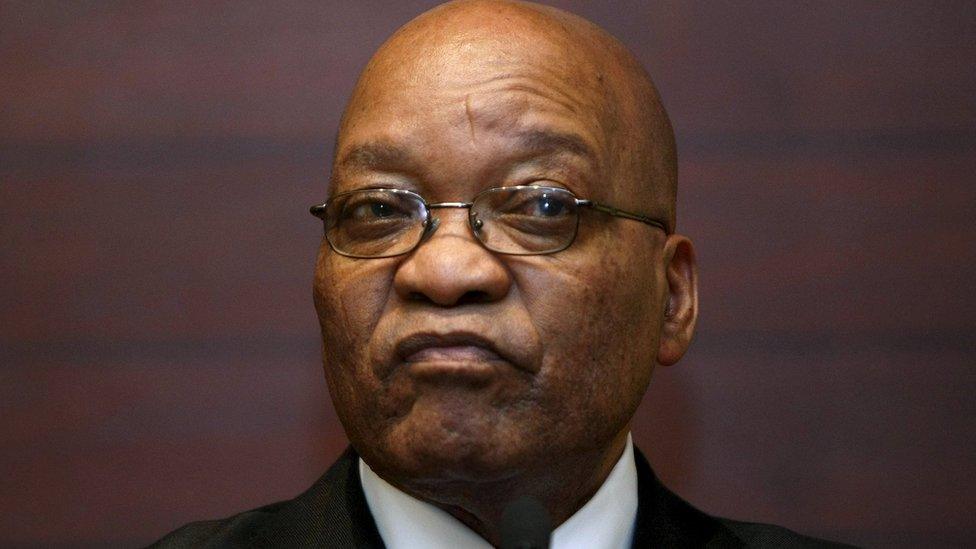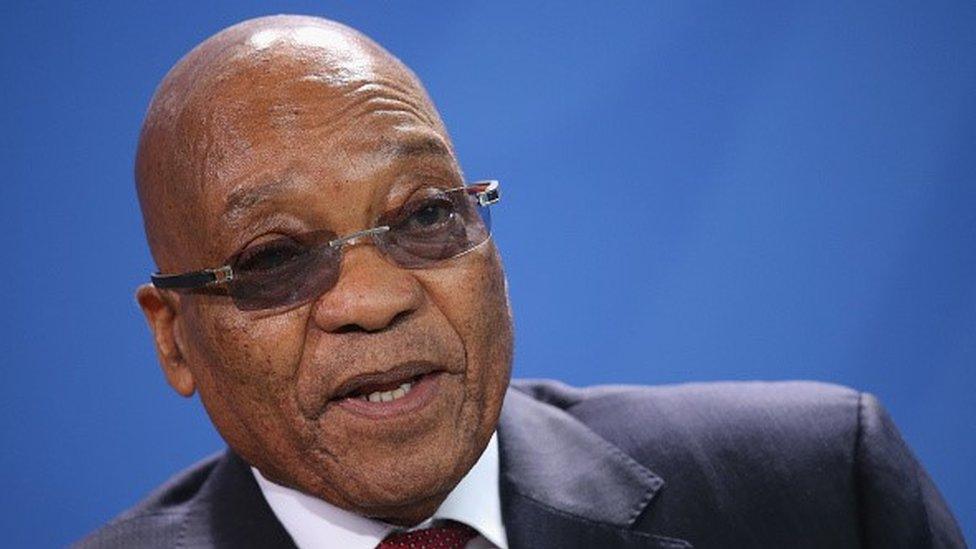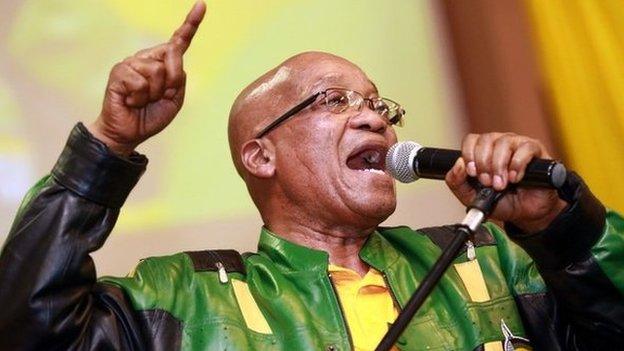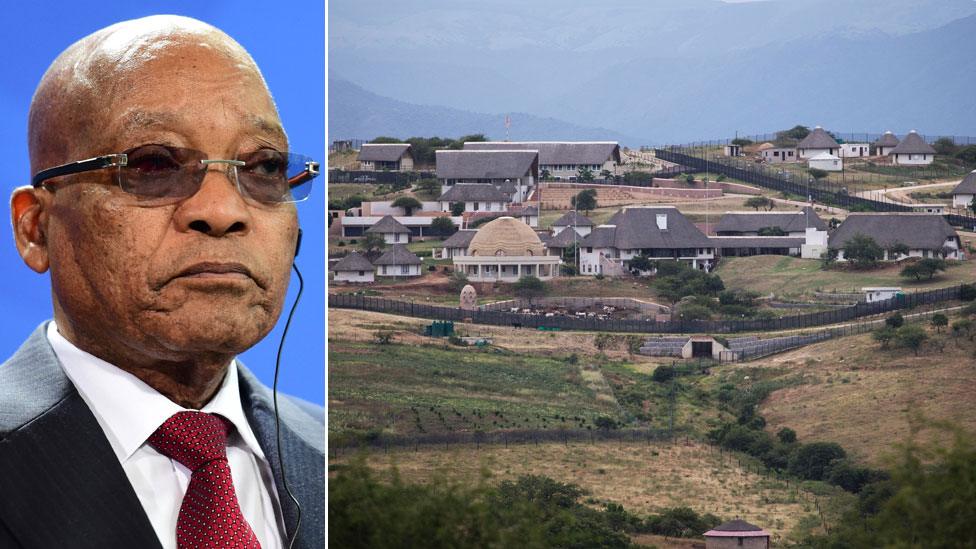South Africa's Jacob Zuma says no evidence of arms deal fraud
- Published

Mr Zuma has always denied any wrongdoing
South African President Jacob Zuma says an inquiry into an arms deal worth billions of dollars has found no evidence of corruption or fraud.
A commission of inquiry was set up five years ago to look into the allegations surrounding the 1999 government deal.
Mr Zuma was sacked as deputy president in 2005 after his financial adviser was convicted of corruption over the deal.
The president on Thursday announced the inquiry had found no evidence against any government officials of the time.
He said money had been paid for consultancy services "and nothing else".
The allegations relate to the government's purchase of 30bn rand (then $5bn) worth of fighter jets, helicopters, submarines and warships in 1999.
Mr Zuma was sacked as deputy president in 2005 after his then financial adviser Schabir Shaik was found guilty of trying to solicit bribes for his boss from an arms company.
Mr Zuma always denied the allegations, and in 2009 prosecutors dropped 700 charges of fraud, corruption and racketeering against him, just weeks before elections which saw him become president.
But his critics refused to let the issue drop, so in 2011 he agreed to appoint a commission to investigate the arms deal, which concluded its enquiries at the end of last year.
This is not the only controversy he has been implicated in. Last month South Africa's highest court ruled he had violated the constitution by failing to repay government money for a luxurious upgrade on his private residence.

Analysis: BBC's Nomsa Maseko in Johannesburg
The investigation, which took four years to conclude, found no evidence of widespread bribery, corruption and fraud in the selection of the preferred bidder to supply the arms, or of payment of bribes to officials in the awarding of the deal.
The three-volume report on the investigation, which will be made public, has not made any recommendations for further investigations, leading some to believe the ANC is covering up for its leader and other officials who were implicated.
The opposition Democratic Alliance believes the Arms Procurement Commission made no real effort to investigate the allegations contained in crucial documents. It has described the final report as a massive disappointment because no-one will face criminal charges.

The controversial arms deal
In 1999, the South African government announced its largest-ever post-apartheid arms deal, signing contracts totalling 30bn rand ($5bn; £2.5bn) to modernise its national defence force
The deal involved companies from Germany, Italy, Sweden, the UK, France and South Africa
Allegations of bribery over the deal dogged the governments of both President Jacob Zuma and and one of his predecessors, Thabo Mbeki
Schabir Shaik was found guilty in 2005 of trying to solicit a bribe from Thint, the local subsidiary of French arms firm Thales, on behalf of Mr Zuma. He was released on parole on health grounds after serving just over two years
Another official, Tony Yengeni, who was chairman of parliament's defence committee at the time of the deal and chief whip of the governing African National Congress (ANC), was convicted of fraud in 2003. He was also freed on parole after serving five months of a four-year sentence

- Published5 April 2016

- Published6 April 2018

- Published1 April 2016
